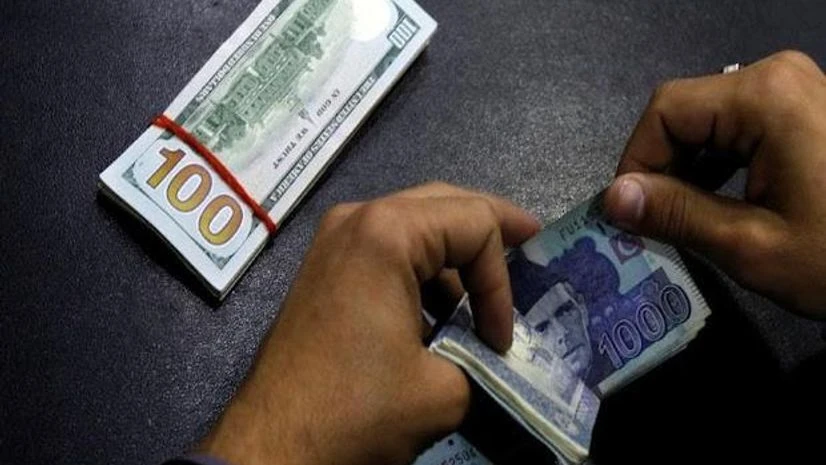The Pakistani rupee has dropped to a record low against the US dollar with the exchange rate sliding to PKR 230, local media reported on Monday.
The data provided by the State Bank of Pakistan (SBP) showed that the rupee slumped to 230 during intraday trade, as compared to its rate of 228.37.
The Pakistani rupee has slumped nearly 8 per cent against the US dollar during the last trading week, and the forex reserves of the country are below USD 10 billion with inflation at the highest in more than a decade, Geo News reported.
"Markets are responding to these shocks in an unfairly broad-brush way, without paying enough attention to Pakistan's relative strengths," Acting governor of Pakistan's central bank Murtaza Syed said.
Capital marker expert Muhammad Saad Ali said there has been a slump in the rupee due to the rise in the political uncertainty in the Punjab province, local media reported.
"Note that BoP (balance of payments) pressures on the currency have eased, as per the SBP, which asserts that Pakistan has enough capital commitments for the next 12 mths to take care of its dollar outflows," he said.
More From This Section
"I reiterate political uncertainty is weakening market sentiment and leading to more PKR depreciation," Ali added.
On Friday, the Pakistani rupee surpassed all prior records against the US dollar after hitting a fresh record low of PKR 228 against the dollar in the interbank market.
The data released by the State Bank of Pakistan (SBP) showed that the rupee fell to as low as 229 during the intraday trade, but it closed at PKR 228.27.
Analysts have said that the political uncertainty in the country due to the by-elections in Punjab and the delay in the International Monetary Fund's (IMF) programme has contributed to the slump of the Pakistani rupee.
"The depreciation this week, amongst other factors, has been triggered by the political surprise that the electorate delivered in Punjab on the weekend, and this frenzy should fizzle out soon," Development economist Maha Rahman said.
The former adviser to the finance ministry Dr Khaqan Hassan Najeeb said that the political uncertainty and a Fitch ratings downgrade has influenced the free fall of the rupee, local media reported.
"With the pronounced rupee slide, financial institutions tried to cover import payments. It created a higher demand in the interbank," the former adviser said adding that exporters hold their proceeds during depreciation to yield a better rate in the future.
(Only the headline and picture of this report may have been reworked by the Business Standard staff; the rest of the content is auto-generated from a syndicated feed.)

)
